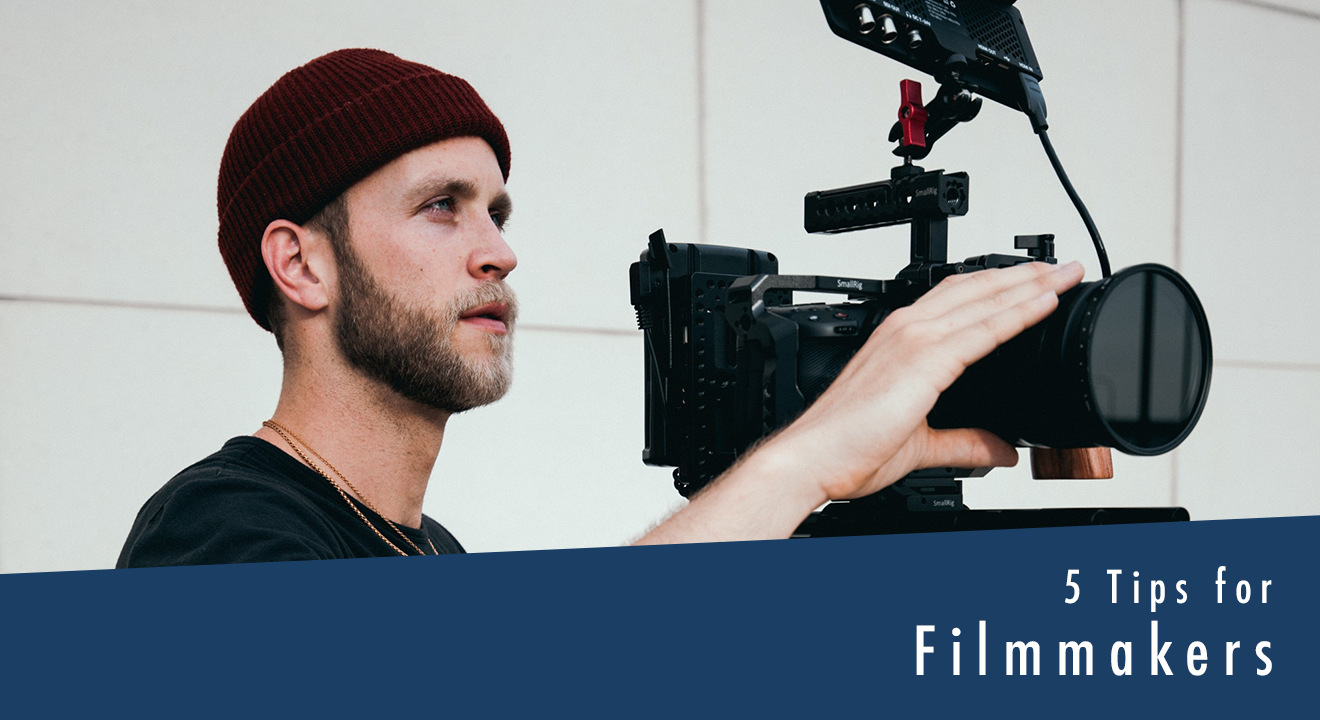5 Tips for filmmakers – Getting Started
Before I offer you my 5 tips for filmmakers, I wanted to ask you a important question. Why do you want to be a filmmaker? Now, this isn’t meant to be condescending, or even provocative, but an attempt to make an honest evaluation of your motivations for wanting to dive into this career field. It goes without saying, filmmaking is one of the hardest artistic career fields one could partake in. That being said, it’s also one of the most rewarding for those who stick it out. As a kid, I wanted to be a filmmaker because I loved watching movies and wanted to be a part of the magic. My motivations early on were purley surface level. I had dreams of creating amazing new worlds and stories and my main focus was sharing that with the world. But, as I got older and deeper into my career, it quickly became apparent that if I wanted to continue on, I had to think of things differently. The truth is, filmmaking is more than having good ideas and storylines. Filmmaking is a balance of economics, logistics, marketing, then mixed with a pinch of creativity. It also requires a dump truck load of determination! So, in today’s post I am offering 5 basic tips for filmmakers on how make your first feature film. Where we go…-
Start small and make your first feature film under $10,000.
You can spend a lifetime raising money for your first feature film. This is the case for most first time filmmakers. And to be honest, there is no market for medium range indie films any more. If you’re trying to raise money for a $1,000,000 movie, forget about it! You either have a minor studio class film costing $20 million and up, or a very low-budget film you can shoot on a shoestring with your buddies. With the advancment of Video On Demand, small and big indie movies are fighting for the same shelf space. It really comes down to marketing. The biggest advantage is you can skip the excruciating stages of fundraising, and won’t lose sleep worrying about paying investors back. -
Start with what you have.
Making movies costs money. The more things you need, the more cost you incur. One of the biggest tips for filmmakers is to create stories and situations around the things you have. The less you have to rent, buy, or ask for help with, the more efficient and controllable your budget will be. For example, if you have a cool location you can use for your film without incurring significant cost, see if you can create a storyline around that location. It might sound tough, but it is completely doable. It will also serve as an amazing creative writing challenge. -
Build your team.
Making a movie takes a village. It’s very difficult to produce a film by yourself, unless it’s some type of arthouse experimentation project, which could be cool. But generally speaking, movie making requires a production team and actors. As you’re developing your script, you should make a massive effort to start building your team. If you can pay your cast and crew, great! If you can’t, be sure to make it a fun experience and find people who you can partner with long term. Most importantly, be inclusive. Allow others to have some level of ownership in the experience. You want them to want your film to succeed as much as you do! -
Get Organized.
Before you can effectively go out and make a film, you must be organized. Logistics is a massive part of the equation. Having a shot list, production schedule, and call sheet are going to help you stay on track and make your days. It’s also important to note that your first attempt at scheduling a film will be messy. You can only learn from doing, so don’t be afraid or turned off if your plans change or fall apart. Pick up and keep working on it. This is where that dump truck full of determination comes in. -
Don’t worry, nobody cares.
Many first time filmmakers are so worried about the outcome of their projects that they fail to unleash the true power of human creativity. They panic when things aren’t perfect. They can’t see past their own high expectations. In my opinion, this is one of the biggest mistakes filmmakers at every level make. One of the biggest motivations for me is to remember that I’m probably the only one that cares about this one thing. If the camera angle or lighting isn’t perfect like it was in your head, just remember that you’re the only one who will care about that. This allows you to emotionally detach yourself from the production, and helps you be more pragmatic in how you shoot scenes. If you’re constantly thinking “this is my only shot”, or “this better be perfect”, you will cripple your creativity and miss the opportunity for beautiful spontaneity. Creativity flourishes best when there is freedom in the mind.



